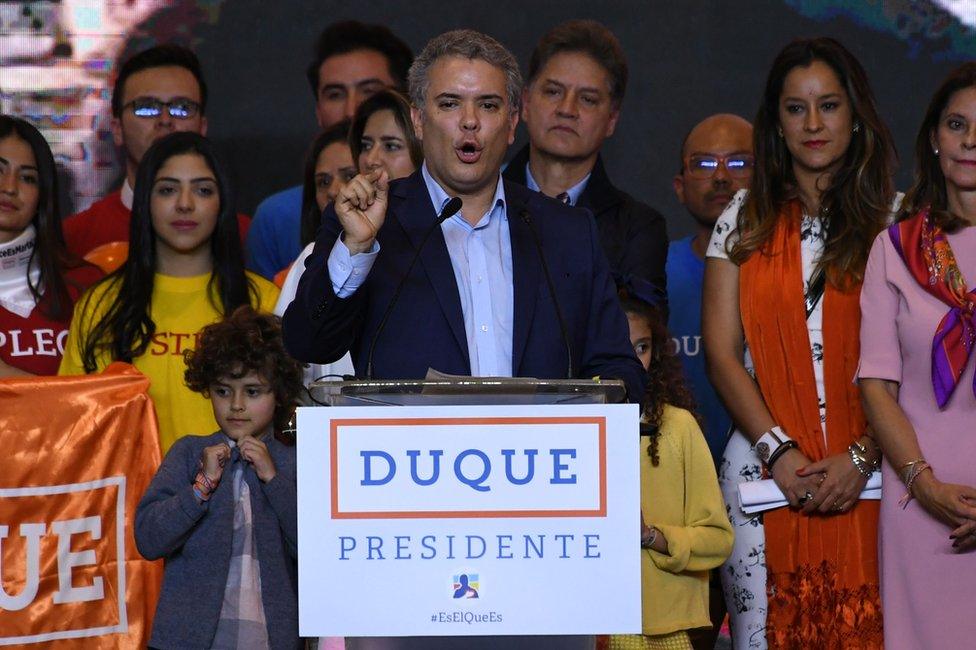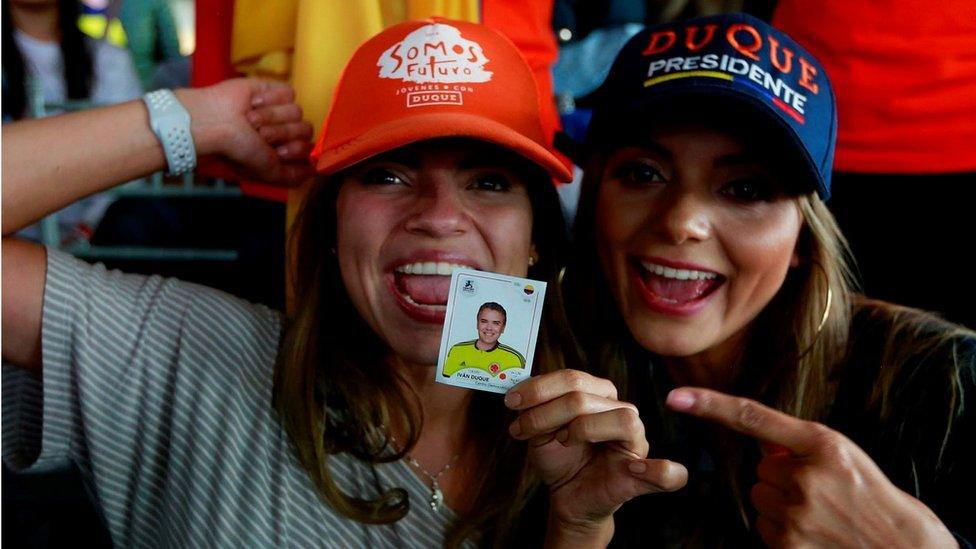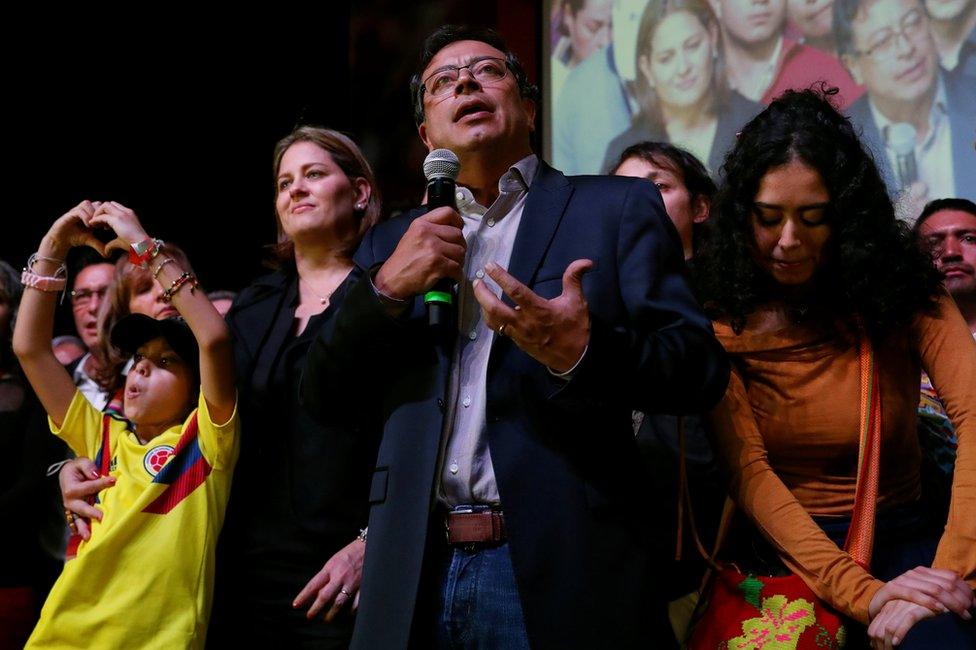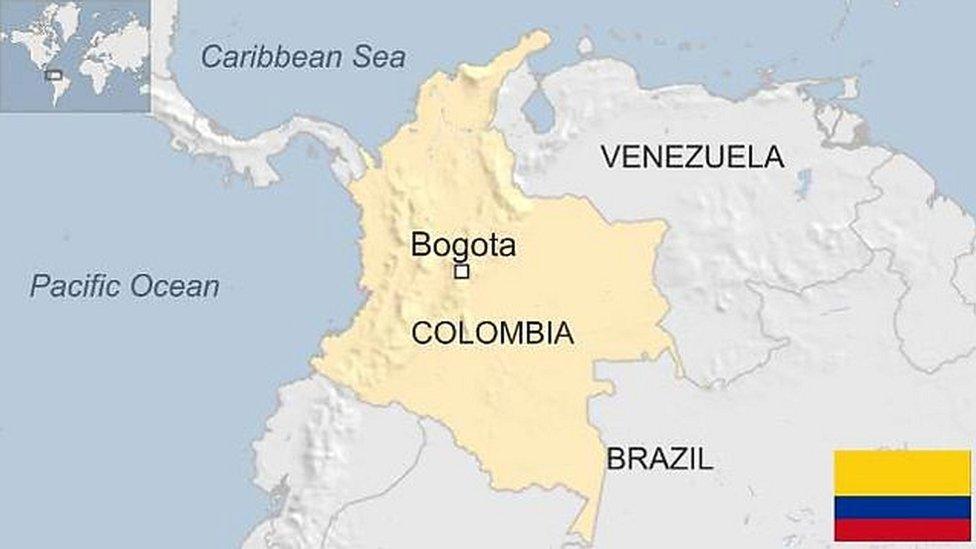Colombia election: Run-off expected in first vote since Farc deal
- Published

Mr Duque, 41, has taken a hard line against former guerrillas
Colombia is heading for a run-off in its presidential election after no candidate achieved 50% of the vote in Sunday's first round.
With nearly all ballots counted in Sunday's first round, conservative Ivan Duque was leading with 39.7% ahead of left-wing rival Gustavo Petro on 24.8%.
It is the first election since the government signed a peace agreement with the Farc rebel group in 2016.
The deal has polarised political opinion across the country.
Mr Duque has opposed the peace deal, saying it is too lenient on the Farc. But Mr Petro, an ex-guerrilla and former Bogota mayor, supports the accord.
Incumbent President Juan Manuel Santos cannot stand again, after serving two terms.

Peace deal hangs in balance
Analysis by BBC South America correspondent Katy Watson
The results of this first round sum up the political scenario in Colombia - a society that is deeply polarised.
Ivan Duque is a man who represents traditional politics. He has publicly criticised the peace deal agreed with the former Farc rebels, striking a chord with many conservative voters.
But in the second round, he will go head to head with a man on the other end of the political spectrum. Gustavo Petro is a former member of the M19 rebel group who has made inequality and corruption priorities in this campaign.
He has pushed for radical economic policies and a redistribution of wealth and he has also been far more supportive of the peace deal. The ultimate success of that agreement will depend greatly on who wins next month.

Why are there questions over the peace deal?
President Santos, a centre-right politician, sought to end the decades-long conflict with the Revolutionary Armed Forces of Colombia (Farc), the country's main guerrilla group.

Duque supporters are jubilant
The peace deal he signed in 2016 was reached after years of negotiations but it was regarded as too lenient by many voters and rejected in a referendum.
A revised accord was approved by Congress later that year.
Mr Duque has promised to reverse some of the provisions of the deal if he becomes president.
He is an ally of former President Alvaro Uribe, who led the campaign against the agreement.
Who is Gustavo Petro?
Mr Petro, who backs the deal, would be Colombia's first-ever left-wing president if he is elected.
In the 1980s he was a member of the M-19 rebel group, which disbanded itself in 1990 to become a political party.

Mr Petro, 58, is popular with the poor and the young, and campaigned against corruption
Correspondents say that with the main civil conflict over, voters are much more worried about economic issues.
The candidates have mainly campaigned on issues such as inequality, unemployment, housing and corruption.
Also standing in the election were:
Sergio Fajardo, a left-leaning former mayor of the city of Medellin
German Vargas Lleras, a former housing minister
Humberto de la Calle, a government peace negotiator
About 100 international observers monitored the election.
- Published23 May 2018

- Published27 May 2013
- Published14 February 2023
